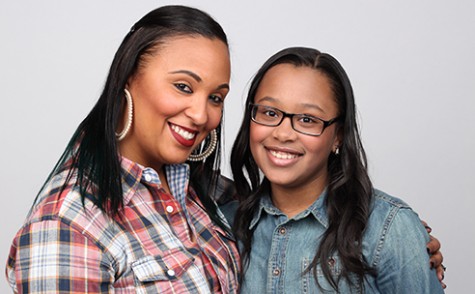KNOW LUPUS Campaign Shows Positive Outcomes

The Lupus Foundation of America has recently launched the KNOW LUPUS campaign to raise awareness and funding to support patients with lupus, as well as research to cure the disease. The first positive result of the campaign was found during the filming of its public service announcement, when Mahlia Mahdi was able to open up for the first time about her disease.
Since approximately two-thirds of the public has little knowledge on the chronic inflammatory disease, besides its name, the foundation decided to create the initiative under the motto “Everyone needs to KNOW LUPUS, to create a future with NO LUPUS.” Mahlia Mahdi is one of the participants on the video created to announce the campaign, and she says she has found her voice.
“It was nice to get out what I needed to say,” said Mahlia in a press release, as she explained her concerns about feeling different from other girls her age. Mahlia is shy and private and, despite the fact that she talks about wanting to be a writer when she grows up, among other topics, she doesn’t feel comfortable talking about lupus or how she feels about it, in fact, not even her mother knew about this concern.
Lupus is a disease that affects not only the patients, but their whole family. According to Mahlia’s mother, Tonika, their family tries to deal with the inescapable struggles associated to a chronic disease a day at a time. “We try not to think so much about the negatives or about the future. I try to focus on the right now and the happy. I’m happy that she’s happy,” said Tonika.
Even though the family is united to face the challenges of Mahlia’s disease, there were times filled with uncertainty. Mahlia was seven years old when a rash appeared and began to spread on her face, but “nobody could tell me what was wrong with her,” remembers Tonika. “[The doctors] told me that she had scabies, that she had psoriasis.”
However, neither diagnosis was able to explain Mahlia’s other symptoms of fatigue or nausea. It was even recommended that she stay at home as the school feared the unexplained condition could be contagious. Shortly after turning eight years old, Mahlia’s diagnosis of lupus was confirmed and the parents had to face a new challenge and decide what to tell her about the disease.
“We were scared to tell her she was having kidney problems,” said Tonika. However, when her daughter began to skip the medication, just pretending to take it, “I had to explain to her what could happen if she didn’t take her medicine.”
Participating in the Lupus Foundation of America campaign was another step for Mahlia to feel more comfortable about talking about her disease. The KNOW LUPUS initiative includes a website, in which anyone can play a game and challenge others to do the same, not only to increase knowledge about the disease, but also to help fundraising, since each time a game level is completed, the National Board Chair’s family makes a donation to lupus research.





